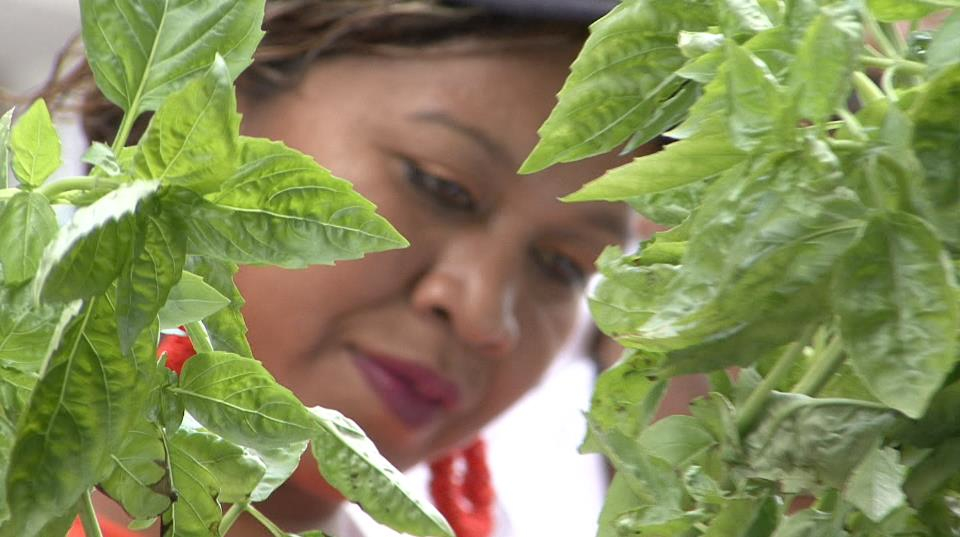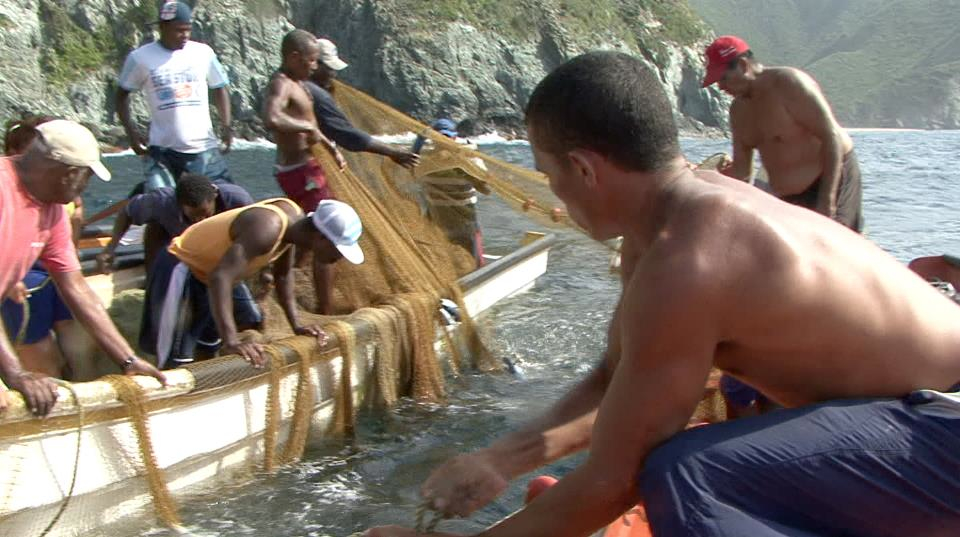Myra James, a member of Incredible Edible Mytholm’s management committee, reviews Simon Cunich’s film Growing Change: a journey inside Venezuela’s food revolution. Venezuela is one of only a handful of countries that have made food sovereignty a national policy.
The screening in the Unitarian Church, Todmorden on Sunday 1st September 2013 was jointly hosted by Incredible Edible Todmorden (IET) and the recently re-launched Calderdale branch of the World Development Movement (WDM).

Before the film we received an introduction to the WDM. We also heard about Shared Interest, a co-operative scheme which raises funds via investments to provide loans to fair trade producers.
The film begins in 2008, when there occurred a “perfect storm” leading to a global food crisis: a number of catastrophic climatic events, the diversion of food crops into biofuel production and the stock market crash combined to trigger massive increases in food prices and riots over food in several countries.
Since the end of World War 2, industrial food production has brought us to the point where each of us in the western world consumes 66 barrels of oil in a year, via the food we eat. 1% of farm land has been lost every year for the past 25 years. Market power is concentrated in the hands of food corporations and supermarkets.
The film focuses on Venezuela, which was an exporter of food in the early 20th century, but became the world’s largest exporter of oil. It became cheaper to import food than to grow it and agriculture collapsed. As a consequence people flooded from the countryside into the cities, populating the hillsides around cities including the capital, Caracas.
Since the election of President Hugo Chavez in 1998, an experiment in sustainable food production has been underway, attempting to restore production to communities. By 2009, six million acres of land had been distributed to families and the government provides low interest and interest-free loans. Fisheries have been regulated to prevent domination by corporations and protect local fishing communities. Alternative food distribution channels have been developed via community markets. Change is driven by communities, via 25,000 communal councils.
In the cities, urban agriculture and aquaculture has developed with government support, with gardens taking over unused spaces.
In 2008, the Law of Food Sovereignty and Food Security ensured provision of subsided food for the poorest people.
Research in agro-ecology is conducted in 24 biolabs and a national school of agro-ecology has been set up.
It sounded like a remarkable good news story, but with the proviso that while domestic food production has increased in Venezuela, so have imports.
Growing Change – documentary trailer from growing change on Vimeo.
IET put on an excellent lunch which made for a convivial and tasty start to proceedings. Donations were collected for the Todmorden Food Drop.
Discussion
A brief discussion followed the film, touching on the distancing of our connections to food and where it comes from; the fair trade movement; the importance of food security, food sovereignty and food health; what people can do as individuals by getting involved in their own food production; and the value of small actions.
Mary Clear of IET told us that Calderdale Council is mapping every piece of council-owned land that can be made available to local people to grow food.
Diary dates
Saturday 14th September: heritage day at the Unitarian Church – an opportunity to find out more about the history of the building.
The Unitarian Church is a grade 1 listed building, now maintained by a team of volunteers under the care of the Historic ChapelsTrust. A beautiful (if somewhat chilly) venue.
Saturday 21st September, 7pm, St. Mary’s Church: Taste the Waste, film.
Sunday 22nd September, IET’s harvest celebration in Pollination Street, 1pm-3pm.

